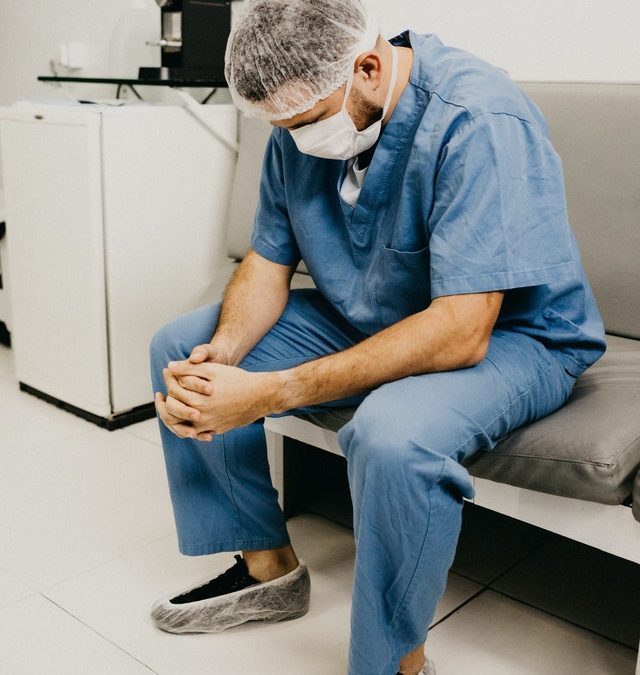In the beginning, the heroes on the front lines—our healthcare professionals—received an outpouring of support.
Signs were boldly displayed in front yards, communities gathered to clap and cheer for them, and messages were written on hospital sidewalks. To the country, these individuals looked strong and resilient as they went to work every day to face the unknown. They put themselves at risk to make sure the general population stayed safe.
As time has gone on, it has proven difficult for our communities to help maintain these high spirits. Underneath their capes and calm appearances, healthcare professionals are barely keeping it together. They are scared, anxious, crying frequently, and finding it difficult to sleep. These individuals are experiencing the mental health repercussions that experts foresaw from the start.
Throughout the pandemic, the demand placed on healthcare professionals has been immense: working long hours, being exposed to trauma after trauma, having to deliver high-quality care without having the proper experience, equipment, or staffing…never mind exposure to a potentially deadly virus. These unprecedented circumstances created a perfect recipe for the development of mental health disorders such as post-traumatic stress disorder (PTSD), depression, and anxiety.
While the healthcare professionals have had our backs, researchers from Georgia Institute of Technology and North Carolina State University have had their backs by conducting a study to understand the psychological impact that the pandemic is having on frontline workers. The study used an online tool and was conducted between March 20, 2020 and May 14, 2020. It measured anxiety and stress related to COVID-19, depression symptoms, and several other health factors in a group of 90 healthcare professionals and 90 aged-matched individuals. What they found was that healthcare professionals were at an increased risk for negative mental health outcomes after reporting higher levels of depression, anxiety, and other health concerns as compared to those who were not healthcare professionals.
This study comes at a pivotal point, as now is the time to sound the alarm in order to try and protect the mental health of these healthcare professionals before it is too late. It is important to encourage members of this community to seek help, and for us—as providers of depression treatments—to make mental health services convenient for these busy individuals.
Contact Vitalitas Denver
Vitalitas Denver is Colorado’s leading ketamine treatment practice, with clinics located in the Denver and Boulder/Fort Collins areas. With top-notch psychiatry and anesthesia providers on our team, our ketamine clinics offer a well-rounded and broad spectrum of care to meet the unique needs of each patient. If you are a healthcare professional suffering from depression, anxiety, PTSD or other mental health disorder due to your experience during the pandemic, please contact us to learn more about ketamine infusions for the treatment of depression and anxiety.


